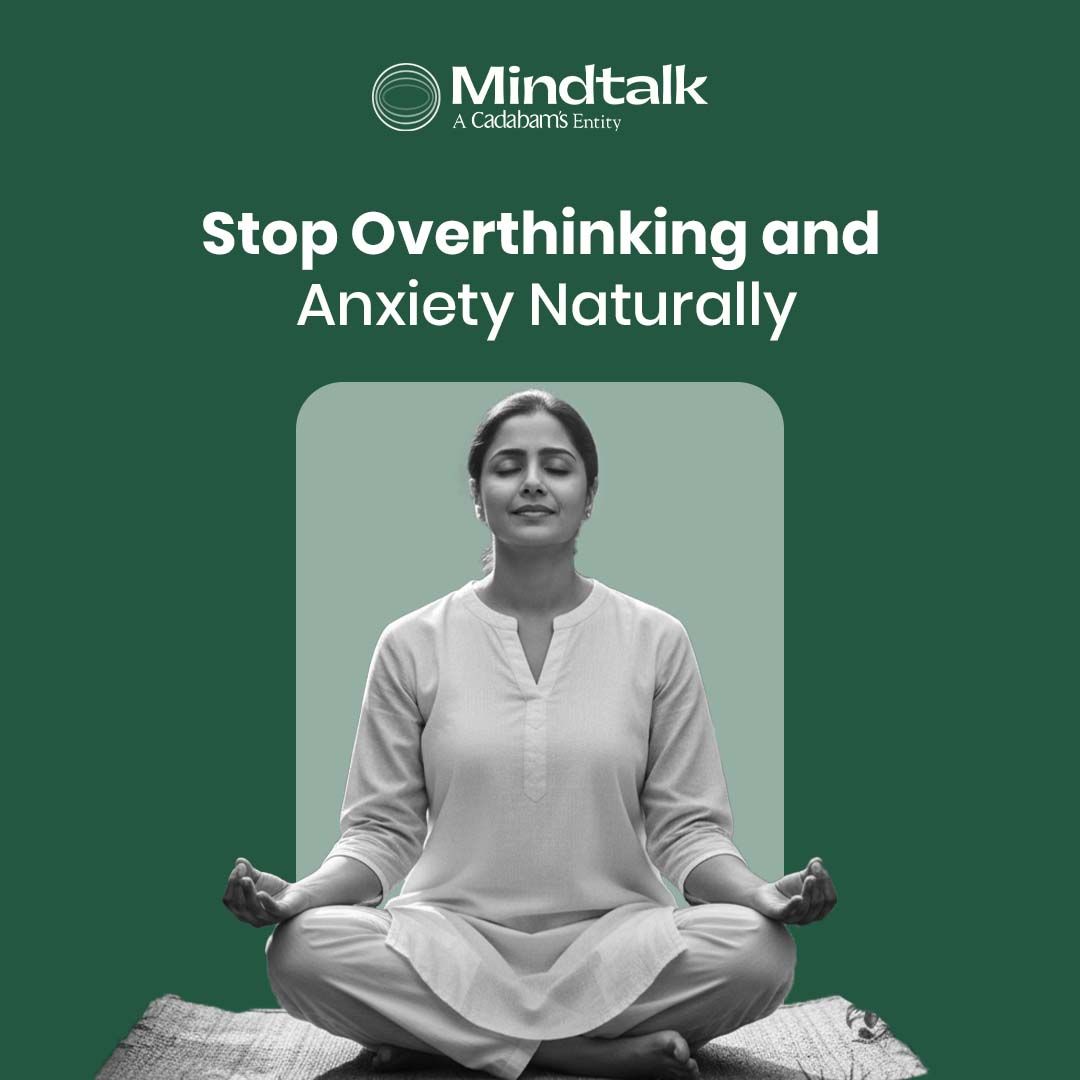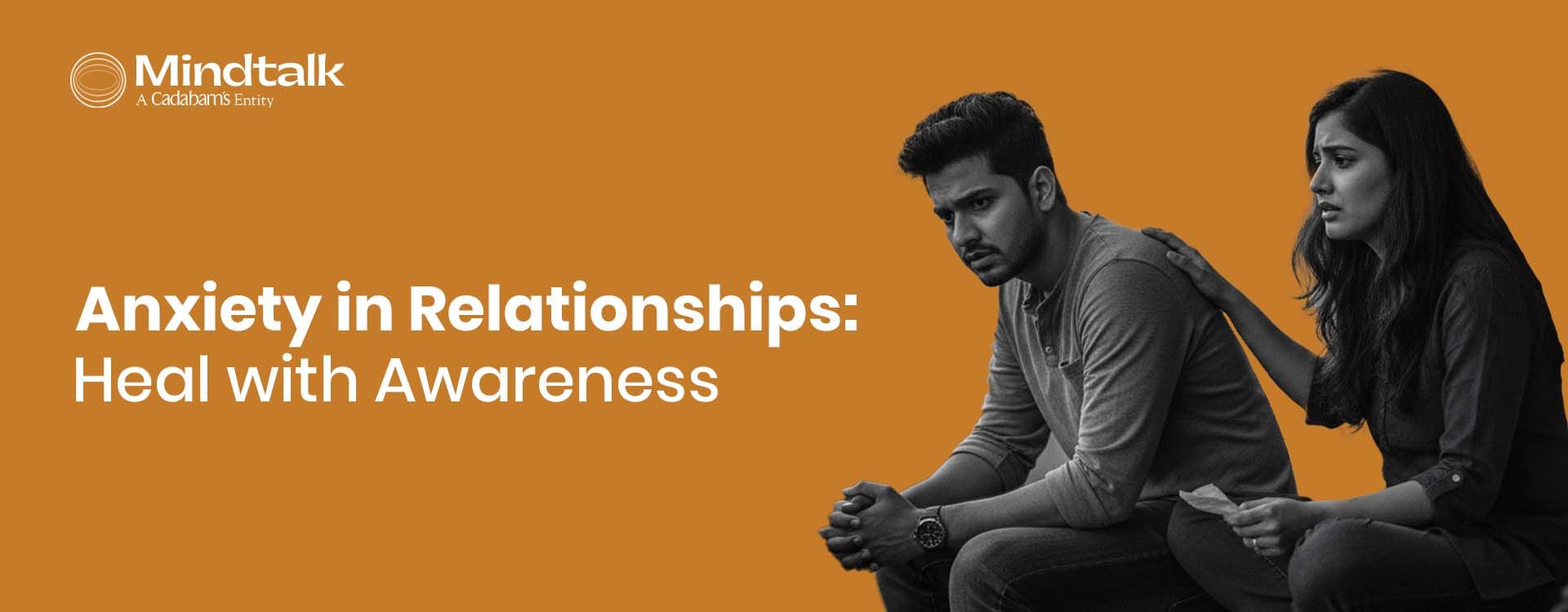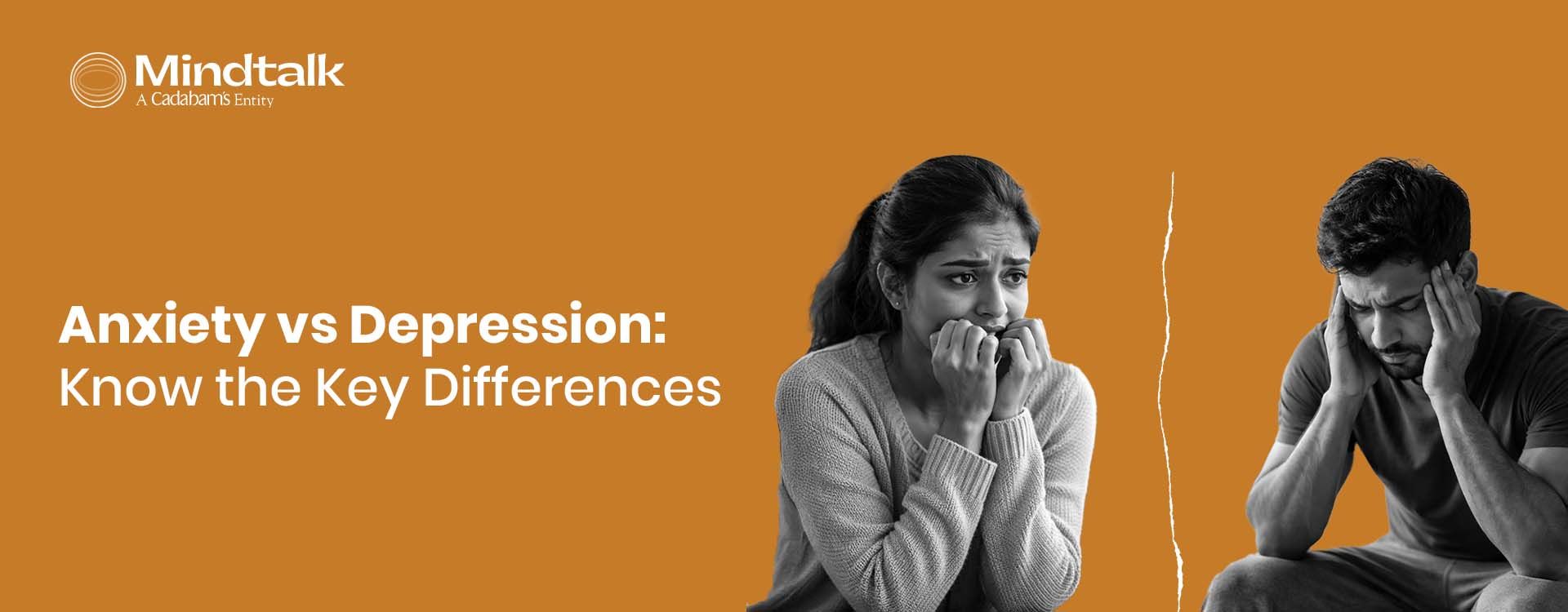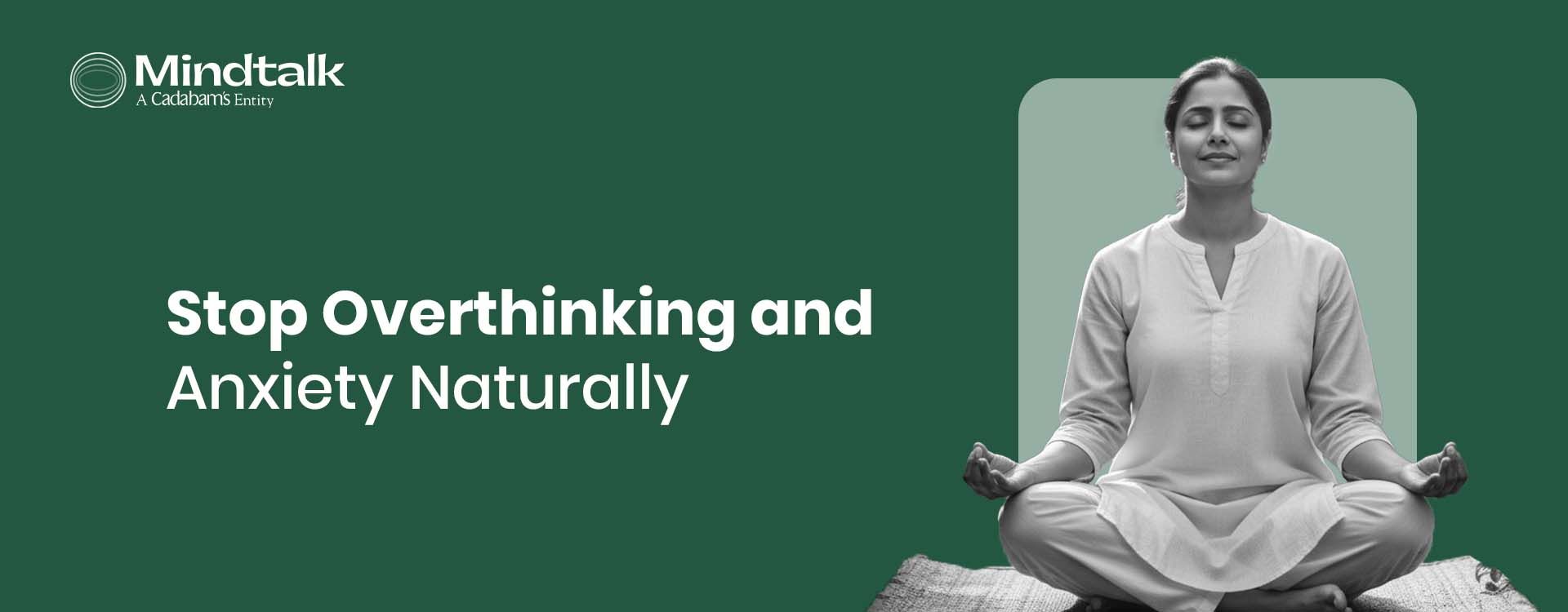How to Stop Overthinking and Anxiety Naturally
Caught in a loop of worry? Overthinking is like mental quicksand, the more you struggle, the deeper you sink. Our brains are wired to predict and protect, but when this instinct goes into overdrive, it becomes a chronic cycle of stress. Let’s explore how and why this happens and what you can do to reclaim your calm.

Why Do We Worry? The Science Behind Anxious Thoughts
Worry attempts to foresee potential dangers, a projected future outcome that is rooted in a threat. The anxiety over ‘what if’ scenarios, guided by the innate desire to stay safe, often presents in one’s life as protective thinking. Worry shifts from being beneficial to harmful when it starts manifesting in repetitive and intrusive thought cycles.
How the Brain Reacts to Anxiety
If there is a threat, worrisome, frightening or real, the amygdala instantly activates. This alarm bell then signals the release of cortisol and adrenaline—a signal to prepare for combat or retreat.
When this situation is triggered repeatedly, the brain rewires itself, interpreting neutral stimuli as hostile. This condition leads to imagining limitless outcomes and hyper vigilance, which creates tension, essentially locking you inside a prison of perpetual overthinking.
Worry vs. Anxiety: What’s the Difference?
Although they can feel the same, worry and anxiety differ in their roots and intensity.
Here’s a differentiating summary of the two:
- Reason: Worry arises out of specific circumstances; anxiety could arise with no reason at all.
- Time: Worry is short-lived; anxiety takes longer to resolve and becomes pervasive.
- Symptoms: Sweating, trembling, and rapid heartbeat are some symptoms of anxiety not associated with worry.
- Functioning: Work, sleep, and personal relationships can be negatively impacted by anxiety.
- Mastery: Worry can be controlled with strategies; anxiety is more complex and feels overwhelming.
- Reaction to support: Worry is likely to ease with support; anxiety often persists.
- Clinical concern: Anxiety requires professional intervention; worry typically does not need outside assistance.
What Triggers Excessive Worrying or Overthinking?
Overthinking is often triggered by life events or stress, rather than occurring spontaneously, suggesting there is some form of stimulus responsible for it.
What attempts to steer you into mental downward spirals often requires understanding. Recognising your triggers goes beyond avoidance. It involves acknowledging, accepting, and knowing how to respond.
Uncertainty about the Future (Career, Health, Finances)
The brain tends to fill in missing details, which often results in worst-case scenarios. Uncertainty revolving around finances, career paths, and even health can quickly lead to obsessive thoughts.
The absence of certainty creates a conflict zone. These unfavourable cerebral patterns could be set free with finding and redistributing attention to controllable anchors.
Fear of Failure or Making Mistakes
Being terrified of failure feels debilitating. Scary enough to second guess every decision, leading to inaction just to avoid regrettable outcomes.
The state of perfection simply does not exist, so the anxiety surrounding flaws can be dialled down by accepting imperfections. True bravery is making bold moves despite fears, not the absence of it.
Perfectionism and High Self-Expectations
The persistent enforcement of surpassing standards creates relentless strain. The striving to attain perfection comes with unyielding pressure and perpetual overthinking leading to emotional depletion. Self-kindness helps to replace harsh expectations with gentle ones.
Negative Past Experiences or Trauma
An unresolved trauma persists within the mind and the body. Trauma can make safe environments feel hostile. When the past is unprocessed, it rewrites your brain to anticipate harm. Patterns of expecting harm can be changed through clarity-enabled support and therapy.
Relationship Conflicts or Loneliness
Relationships are pursued in the bids of safety, so when they go missing, it adds to the burden. Feelings of loneliness or conflict lack resolution and are relived repeatedly in the form of unfinished dialogues.
We attempt to “fix” the undefined problems in overthinking. Often, the solution lies in relinquishing the need to resolve and surrendering to feeling.
Chronic Stress or Work Overload
Relentless stress leads to an overactive brain that does not pause. When in need of taking a break, the mind stays in problem-centric hypervigilance. It does require taking a break, responding to the problem centred worrying enables lack of ease. In addition, guaranteeing rest coupled with boundary setting is paramount to enable calm.
Poor Sleep or Physical Health Issues
Insufficient sleep disrupts mental performance and makes it challenging to organise cognitive functions.
Without sufficient shuteye, both physical and emotional health problems exacerbate your cognitive resilience. This increases your risk to an emotional spiral. Reducing anxiety and panic primarily relies on putting rest as a priority.
Social Comparison and Pressure (Especially Online)
Cyclically going through curated lives and put together profiles can make you feel like you are headed towards a dead end, that you’re lagging.
Social media is a modern-day marvel, but it does have its problems, and one of them is amplifying feelings of inadequacy, which in turn will take a toll on your insecurities.
Lack of Control in a Situation
The combination of emotions caused by confinement is a significant aggravating worry. In cases where something significant is out of your control, your mind attempts to compensate with mental overdrive.
Planning out every detail or worrying on a conscious level (and sometimes sub level) about every outcome tends to render no actual relief, only what seems to be an illusion of release.
Overuse of Stimulants Like Caffeine or Alcohol
Consumption of Caffeine and Alcohol abused separately have a fuelling effect on the nervous system and disrupts the Biological Clock Sleep Schedule Type II Hypersomnia respectively. Both may heighten anxiousness and may also lead to an irritable or foggy mentality.
Signs You Are Overthinking or Worrying Too Much
Every individual worries about something —but chronic worrying becomes a challenge and manifests itself in a few ways such as easily noticing specific signs. With these signs, you would know it is time to take a step to safeguard your mental well-being.
Mental Signs
Mental Overthinking begins with the mind: Overactive cognition—and these symptoms are often the first alert. When thoughts lack momentum or feel stuck in dry terrain, it may be a signal to pause and contemplate.
- Racing thoughts that circle without resolution D fixation on potential negative outcomes
- Overcoming minimal decision fatigue
- Revisiting events compulsively and regret reuse fantasy wishing alternate outcomes
Emotional Signs
Emotionally, persistent worry and stress negatively impact mental health. These symptoms invisibly convey how overthinking shapes one’s mental universe, even when there is no observable problem.
- The sensation of feeling overwhelmed or emotionally drained.
- If there is no clear reason, an unsettling sense of dread persists.
- Outbursts of emotion or anger that are unexpected in nature.
Physical Signs
The body has ways of signalling issues that the mind chooses to keep quiet about. If left unnoticed for long, anxiety can manifest itself physically as troubling symptoms. Tuning into such symptoms can help one prevent issues by intervening at an earlier stage.
- Trouble getting asleep or maintained sleep.
- Chronic muscle tightness in the neck as well as jaw region.
- Increased heart rate or shortness of breath while resting.
- Gastrointestinal issues such as cramps, and nausea, or even stomach unease.
How to Stop Overthinking and Anxiety: Proven Strategies
Like most other mental discomforts, overthinking cannot be switched off instantaneously, but rather silenced. It can be soothed by cultivating habits that calm the nervous system and restructure anxious thought patterns.
Such methods yield the best results when done consistently. Remember, there is no need to aim for achieving perfection. Instead, strive for progress.
The "Write and Release" Technique
Take a few moments each day to write down your thoughts and worries. This makes it far easier to let go of what is cluttering.
Releasing burdens through a daily five-minute journaling session helps uncover mental fog. For example, ask yourself, “What am I currently worrying about most?” or “What is the worst that would happen?"
Mindfulness and Grounding Techniques
It is sharper and more productive to channel one’s thoughts into the now rather than wandering into ‘what if’ loops. These mindfulness techniques assist you to come back to your breath and body.
- Body scan: Recognise and let go of tension consciously in every body part starting from the head to the toes.
- Breathwork: To soothe the body’s nerves, try deep breathing — inhale for 4 counts, hold for 7, exhale for 8.
- 5-4-3-2-1 technique: Name 5 things you see, 4 you feel, 3 you hear, 2 you smell, 1 you taste.
- Silence is not the focus of mindfulness; rather, it is about being fully engaged.
Cognitive Behavioural Techniques (CBT)
CBT is one of the strongest approaches to manage anxiety and overthinking. It identifies and restructures faulty assumptions guiding one’s thinking.
- Harmful aids and enforcements are asked through: “Is this thought helpful or harmful?”
- Challenge: “What’s the evidence for and against this belief?”
- Reframe: “What would I say to a friend in this circumstance?”
These minute changes in perspective lead to immense transformation with time.
Healthy Habits to Reduce Overthinking and Anxiety
Your daily rituals incorporate habits that affect your HEALTH on a greater level. These specific lifestyle practices are gentle and simple yet effective in helping your thoughts move from an upward spiral.
- Following a sleep therapy regimen enables you to recover fully. It provides your thinking organ a hard reset.
- Daily routines like yoga, walking, or low-impact aerobics helps reduce extra adrenaline release.
- Moderating caffeine consumption and digital control in the latter part of the day allows the brain to relax at its own pace.
These changes may appear minor, but they have an incrementally profound effect mentally.
When Should You Seek Professional Help for Overthinking and Anxiety?
Taking care of yourself and self-help guidelines is a great beginning, but, at times, anxiety may need additional support.
If the symptoms are predominant and prominent, as well as difficult, seeking professional help can make the difference and ease the burden, especially for daily life tasks.
These are some signs which indicate that seeking professional assistance is recommended:
- Your worries or thoughts have become overwhelming and disturbing.
- You experience fatigue, insomnia or panic.
- You have tried self-help methods, but with little to no success.
- You feel like you need to escape social situations in order to evade anxiety.
- You begin relying on alcohol, smoking or drugs to manage anxiety.
Break Free from Overthinking with Mindtalk’s Support
Break Free from Overthinking with Mindtalk's Support Anxiety often thrives in isolation, but healing happens through human connection. Mindtalk provides a safe and welcoming environment to understand and transform your anxious patterns.
How Mindtalk Experts Can Help
Our psychologists and therapists apply a variety of therapies, such as CBT and mindfulness-based interventions.
With defined, personalised recovery plans, some mid holistic approaches, balancing chronic overthinking with sudden anxiety spikes, which are supported clinically.
Start Your Journey Toward Calm with Mindtalk
Peace isn’t a destination—it’s a habit. Let’s take the first step together. Reach out to Mindtalk today to begin your journey back to ease, clarity, and emotional strength.
Whether you're feeling overwhelmed, stuck in loops of worry, or just need someone to talk to—we're here. You don’t have to navigate your mental health journey alone anymore.
Meet Our Anxiety Management Professionals




